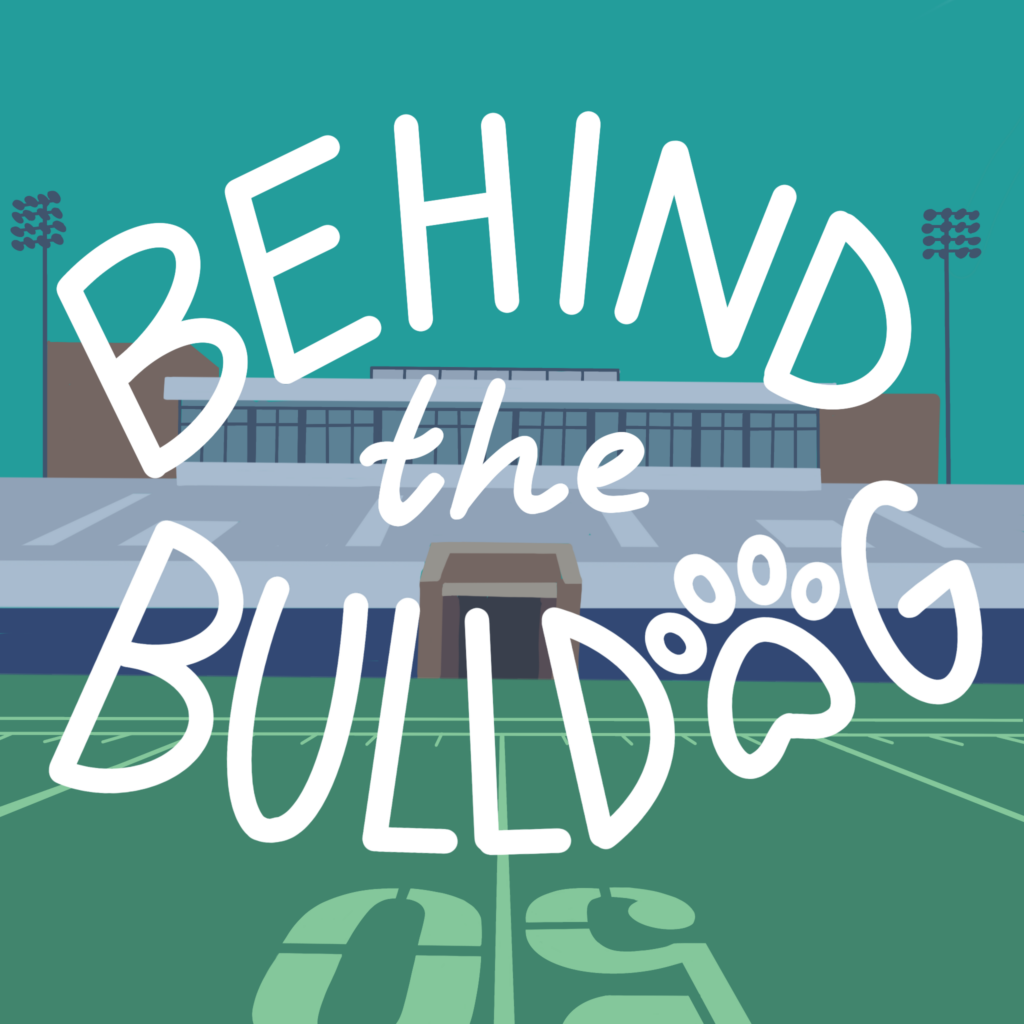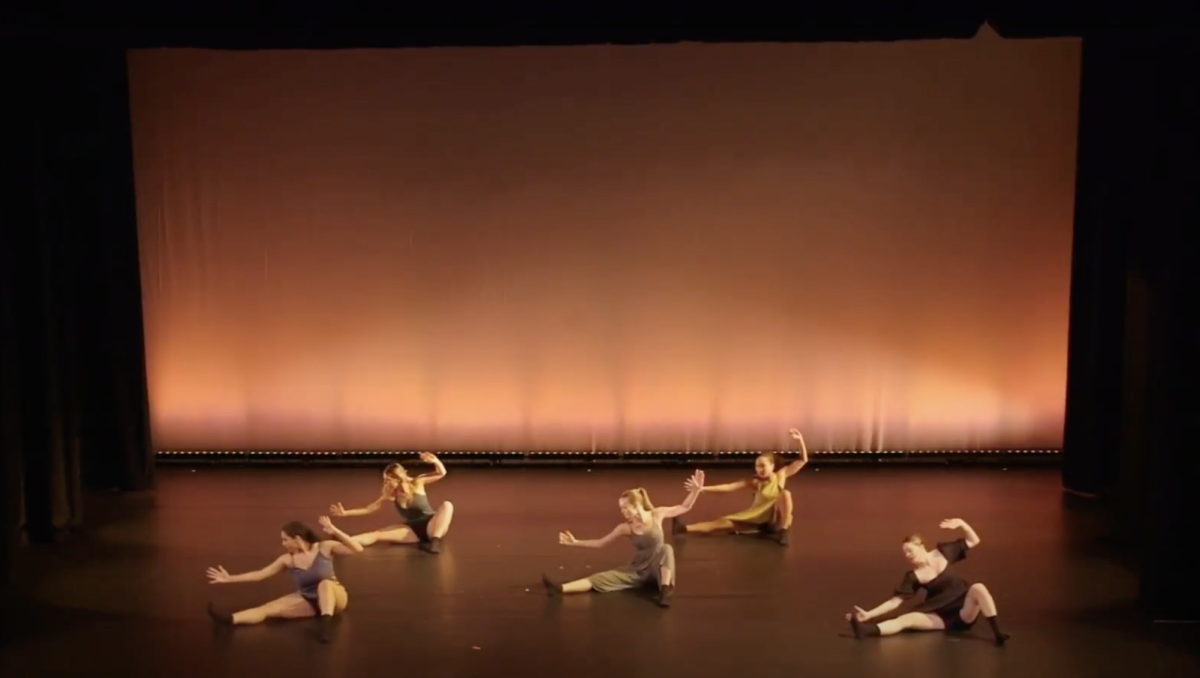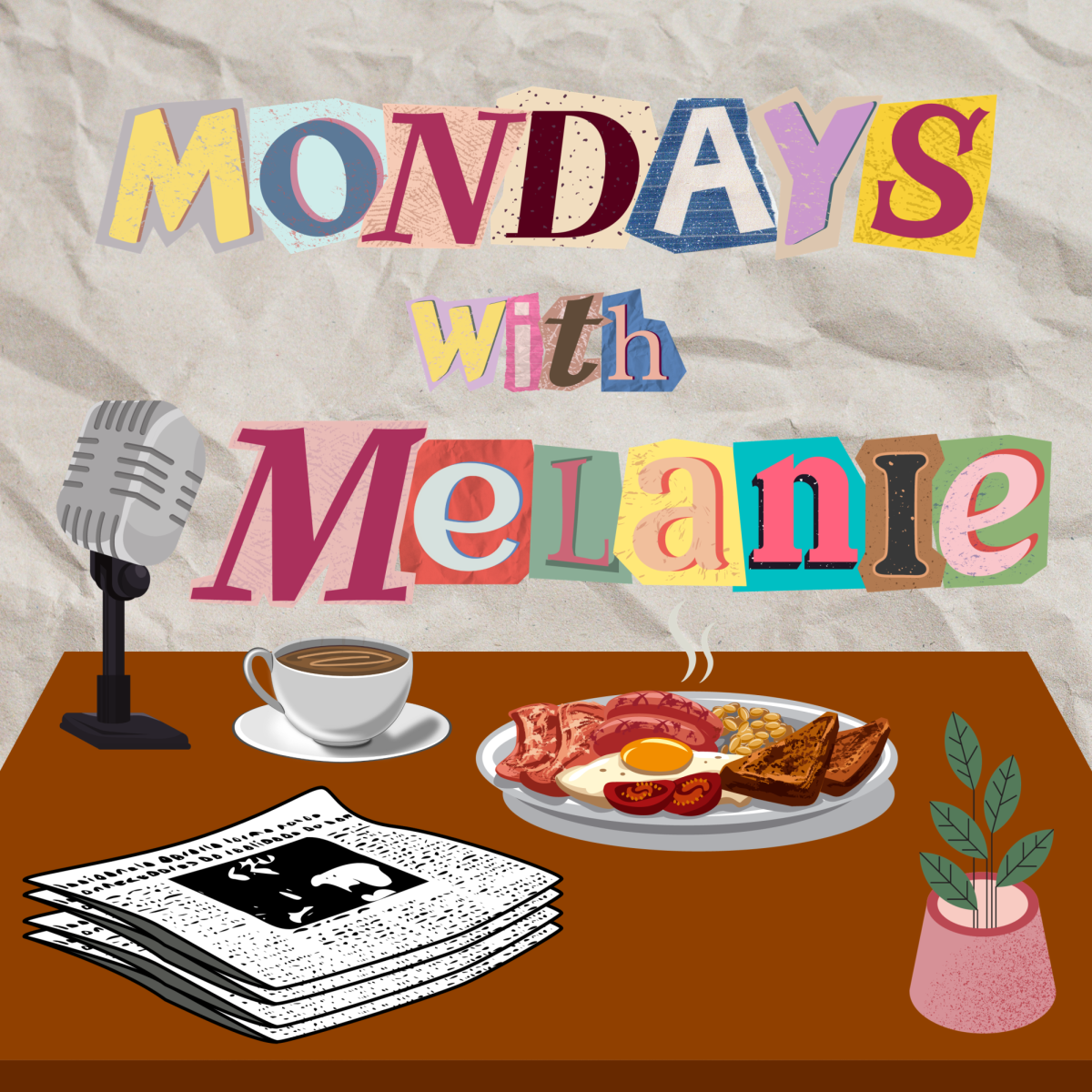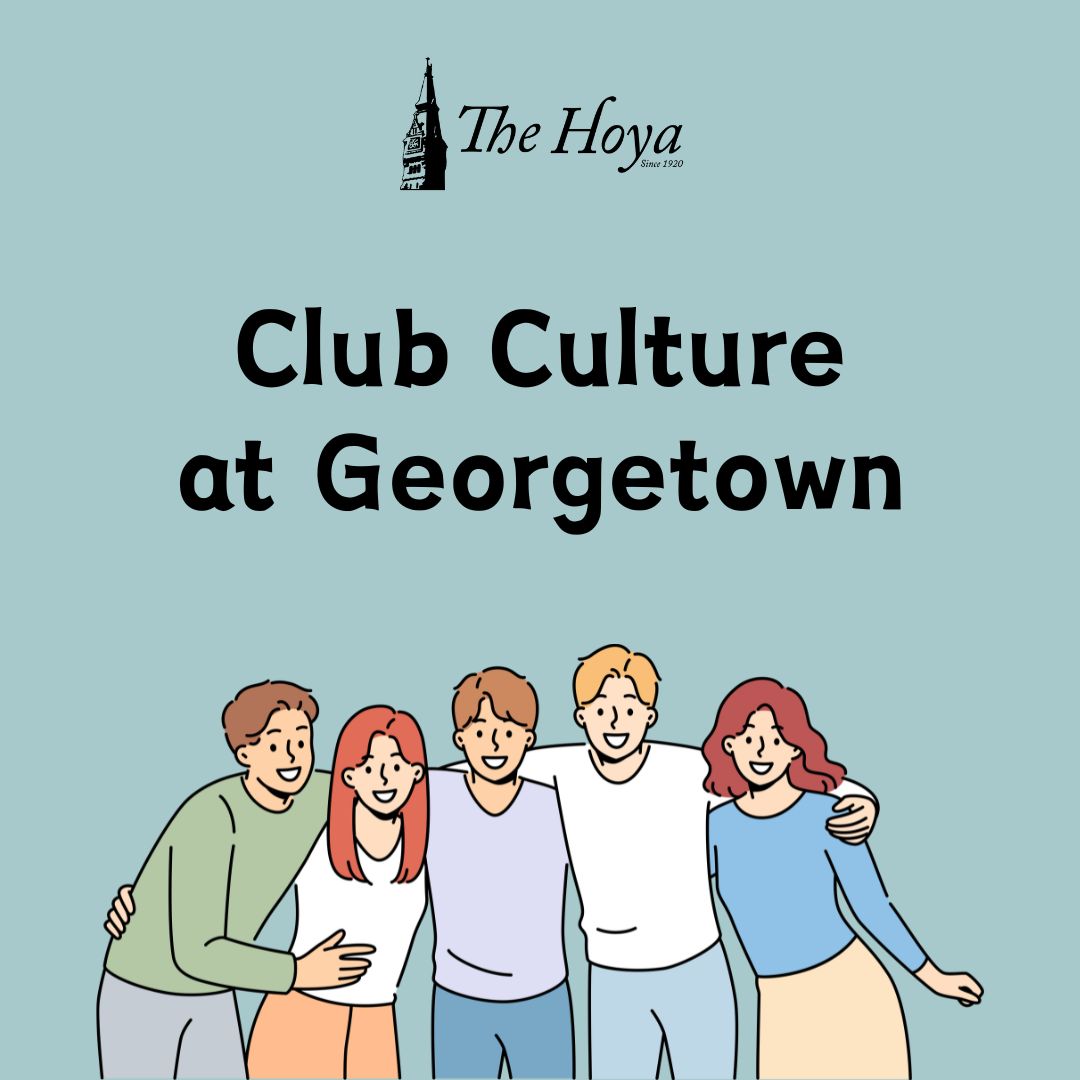“Behind the Bulldog” is a new podcast during which host Teddy Gerkin (CAS ’26) interviews athletes about their lives both in and out of the game. In the second episode, Gerkin interviews golf player Zander Maloy (MSB ’27) as he navigates his first year at Georgetown while being an athlete, his team’s trip to the 2023 St Andrews Links Collegiate and what fans should be looking forward to in the spring season.
Transcript
Teddy Gerkin (TG): Hello and welcome to “Behind the Bulldog,” where we give you a behind-the-scenes look at the college experience of our student athletes. I’m your host, Teddy Gerkin, and I’m joined by first-year men’s golfer Zander Maloy. Zander, how’re you doing today?
Zander Maloy (ZM): I’m doing pretty good. Thank you for having me out here.
TG: Of course! So Zander, I wanted to start by talking about your life before Georgetown. Could you discuss just when and how you first got into golf?
ZM: Yeah. So my parents, they’re tennis players. They don’t really play golf at all. I was a big lacrosse guy all throughout elementary and middle school. But actually, the main reason I got into golf was I broke my collarbone skiing in like fifth grade, and I missed tryouts for lacrosse, wasn’t on the team. And like I needed something to do to kill time. I had a bunch of friends at the course that I was playing at — or, the club that I was at, and it seemed pretty fun. So I tried it out. Summer was a lot of fun. We played like 12 hours a day. And it was with a bunch of other guys, and just very, very fun. So that just kind of got me interested in the game.
TG: Would you say there was a particular time when you started to, like really take golf seriously, as something that you would have a future in?
ZM: Yeah, I’d say probably eighth or ninth grade. Because up until then I played all the sports. I went to Mater Dei [school] and I was doing lacrosse, football, basketball. I actually did wrestling. So I was doing everything. And golf was still important, but it was just like, kind of whatever. And then in ninth grade I started taking it seriously. You know, I wanted to try to play a D1 sport and I was pretty good at golf, fortunately. So I kind of went down that route.
TG: Yeah. So you went to high school, Georgetown Prep. Shout out Prep, go Little Hoyas. You know, they have a golf course on campus. Would you say that aided your ability to practice often?
ZM: Yeah, definitely. With the team, it was pretty fun. We did a lot of short-game practice and just kind of having fun games, working on like scoring. Since it’s a pretty short course you can get around there pretty quickly and shoot pretty low. So it was definitely good helping me shoot lower scores.
TG: Yeah, that’s good. What other, what other courses in the area would you say you were playing at often to practice?
ZM: So I’m fortunate enough to be at Congressional Country Club. So they have two courses out there. Some nice practice facilities. So I played there mostly. Yeah, I mean, I didn’t really practice or play much really anywhere else just because I had it — it was right next to my house and it’s easy to play there, good course. So I played there a lot. I had a couple buddies, good friend Peter Barros from Prep, he played out there. So yeah, that was a good spot.
TG: That’s cool. So let’s, you know, let’s talk a little about your high school career. You were, you were very fortunate to have a pretty storied career. I want to skip to your senior year. Alright, your playoff win in the IAC [Interstate Athletic Conference]. Could you talk about, you know, just that experience: what you were feeling, then ultimately the winning feeling?
ZM: Yeah, definitely. So going into the year I had aspirations to win the IAC individual and the team championship and yeah, that was a roller coaster round. Actually, no. Actually, no, that was that was pretty standard round, I think I shot 71 or something. And then I got into a playoff with another good golfer, Grant Lester. And it was pretty cool because like everyone was watching, all the teammates, and they really wanted me to do well. It’s definitely, definitely pretty nerve-wracking. I had to make like a six-footer on the first playoff hole to keep extended and then put myself in position on the second hole, made a birdie. It made about 10-footer and everyone went crazy, so that was sweet. It was a great experience. And all the guys were very supportive and really rooting for me to win. Yeah, and was doing it for Coach Barry. Yeah, shout out to him.
TG: That’s awesome. Yeah. And then ultimately, at the end of that season, you were named the All-Met golfer of the year, only the fourth in Prep’s history. So what did, what did that mean to you? You know, the moment you found out you won?
ZM: Well, yeah, that was awesome. Again, that was another aspiration of mine. I’m good friends with Trevor Matese (COL ’10) and Davis Lamb who were both also All-Met players from Prep. I knew that during the regular season I didn’t play that well. But after I won IACs and got medals at Metros, I was like “this should be something that I can definitely, definitely get.” A lot of good guys in the league. But yeah, it was awesome to be named that. It was cool. We did a whole photo shoot with the Washington Post, like interviews and stuff. And yeah, it’s just pretty cool to see like yourself in the paper. And a bunch of people were like “that’s awesome,” “I saw you in the paper,” whatever. Yeah, a lot of people I didn’t know just like, said “oh I saw you.” Yeah, it was. It was very cool. And I was very fortunate to get named.
TG: Yeah, so myself, and I’m sure a lot of our listeners too are unfamiliar with the recruiting process for college golf. Can you talk about your process a little bit, about how that works?
ZM: Yeah, so golf is a little bit more objective than most sports. It’s kind of like, there’s this, these rating systems like the Junior Golf Scoreboard or AJGA [appos] rankings, basically you play in tournaments, pretty much all outside of school, individual tournaments, two-day, three-day tournaments, and whatever score you shoot. So say you shoot 72, and the Course Rating — it’s all based off course rating and like your differential against the whatever. So you shoot 72 is par and the course rating was like a 72. That’s a zero, and like a zero scoring differential. And they basically rank it off of what your scoring differential was, and how well the tournaments, or like, how good of a field you’re playing in. A lot of coaches like to see top five finishes, wins and stuff.
ZM: It’s very competitive though. There are a lot of junior golfers, I think there’s at least 10,000 registered on the Junior Golf Scoreboard. And yeah, it’s usually just two guys from each — get chosen for each class. So yeah, I definitely had to reach out to a lot of people and talk to them. Because I mean, if they get, if a school gets two really good guys, like reach out to them, like, top 20, like you’re done. So you kind of gotta cast like a big net. I was fortunate enough, I played pretty well in like, my sophomore, junior year. That’s kind of the main time when you need to play well. I think I started, you can start talking to coaches summer of sophomore year. But most people, at least for the schools I was looking to, committed, I’d say junior summer, like, which is I guess relatively late, compared to other sports. But yeah, I thought that was a good time frame.
TG: So being, you know, being from the DMV, would you say, was there any local tie? Were you biased towards Georgetown in any way, shape or form? You know, was there any sort of extra motivation to come here to play?
ZM: Yeah, well, I always knew Georgetown was a great school. So I love that. And my parents — I was actually born in Georgetown, Georgetown Hospital, which is pretty cool. A lot of us, you know, a lot of Prep guys go to Georgetown. And I don’t have any direct family ties, but my parents always said how great the school was and it’s always been like a school that’s been on my list like Georgetown, a really cool spot. Great academics, good athletics, good basketball program and stuff, which is good. So yeah, it definitely had a lot of influence. And it was always like, a top school of mine. And going to Georgetown Prep, I guess that helped a little bit more, continue the Jesuit education here.
TG: Yeah, totally. So did you have any offers to other schools? Like what were you considering when you were making your ultimate decision?
ZM: Yeah. So I was pretty well recruited. I had offers from like a couple Ivys, like Columbia, I had Navy, Maryland, William & Mary, Villanova, BC [Boston College], a couple others. But it mainly dwindled down to academics for me. I thought Georgetown was the best fit. I love the business school here. That was one of my main reasons. And then also, the team dynamic is awesome. Like, all the guys on the team are so great. And we all get along really well. Super supportive, and it’s not as cutthroat as a lot of other programs. Especially like when you get higher up a lot of the programs it’s like, “You’re not my teammate. I just want to beat you out in qualifying and play.” But here, it’s more like “We’re a team. We’re going to play golf, whatever happens, happens.” Like we have each other’s back. And that was just really nice.
TG: That’s pretty awesome. Yeah, yeah. So even you know, so even though we’re only a couple of months into your college career, would you say there’s anything about college life that you maybe didn’t expect or any adjustments you had to make, you know, starting in college?
ZM: Yeah, it was very, very busy, which I did expect in the fall because we’re practicing six days a week. And it’s basically we leave at three o’clock and we get back at like seven or eight every day. And on the weekends, it’s like 12 to like six or seven. So, yeah, not as much time to socialize, as I would want. Like, now is the offseason, it’s great, I have a lot of free time. So I, like, study in Lau and kind of mess around a little bit more. But I mean, in season it was: go to classes in the morning, get on the van, go practice, come back, do work. And then we go out on the weekends with the team. But I love it though. I kind of like being busy and always on, on top of things. So that was not really any surprises, though.
TG: Okay. Yeah. So I mean, you’ve kind of discussed it a little bit already. But um, you know, would you say that your athletic commitment affects your academic performance or your social life? Obviously, a lot of time management that’s going into it.
ZM: Yeah, definitely affects the academic performance a little bit. It’s just like, not as much time to do everything. And I mean, the biggest issue is just like missing classes. Because golf is like a big time commitment for tournaments. Like, I played in the last three tournaments, I didn’t play in the first two, and I missed three days for a tournament at Maidstone, I missed two days for Woodmont, and I missed a whole week going to St Andrews. And like, I have to make up midterms, I miss class, I miss material. And it is pretty hard to catch up sometimes, especially when I’m a freshman and I don’t have as many connections with guys to help me out and like, give me notes and stuff. So I had to communicate with the teachers and they were all really nice about it, being accommodating to the team. But yeah, it’s definitely a balance. Like right now, I have a lot more free time and I should do better in the academic realm. But at the same time, though, I feel like I’m procrastinating more now. I feel like it’s much harder to get work done. In the season it was like, “Alright, I’m just going home, doing the work.” Now it’s like, “Oh, I can take a nap. I can do this.” And I’m just like, I don’t want to do work as much, but it’s definitely nicer to have time.
TG: Yeah. So you’ve already touched on it. But I really wanted to talk about your participation in the St. Andrews Links Collegiate. Yeah, could you first just talk about, like, what it was like traveling to Scotland, you know, with your teammates?
ZM: Yeah, that. Best golf experience of all time, best trip. It was so fun. I was very, we were very fortunate to get into it. Thanks to Coach Hunter and all the guys in the athletic department. Yeah, it was a week long trip. We got a big bus. We were actually traveling with the women’s team, which was a lot of fun. We usually don’t do that. So yeah, it’s more fun. We’re talking a lot, messing around with them. So playing around is fun. We’re all tired, but so excited to play. We got to Scotland it was like, “Wow.” Like, we were treated like royalty there because NBC paid for, like all of our stuff. Yeah. They’re putting us in like these sweet buses, like super nice hotel, like, all these like sweet dinners and stuff. And it was like, just unreal. Like, win or lose, it was like we’re in Scotland. And like, we’re not in school, we’re playing golf. It’s like it didn’t get much better than that.
TG: That’s awesome. Yeah, so could you talk about your experience, like on the course, you know, like, how much pressure was it being on such a grand stage?
ZM: Yeah, um, there was definitely a lot of pressure. But it was — we were kind of going in as underdogs, which was, I guess took a little bit of pressure off and it was more just kind of like, I just want to go out there and prove like that we’re able to compete with them. But yeah, with all the camera setup and stuff, it was definitely nerve-wracking. I mean, I was playing with like, the best amateurs in the world. Like UNC and Vanderbilt, they’re ranked one and two right now in the country and I was playing with guys that are going to be on the PGA Tour next year pretty much. So it was very cool and it was fun to compete against them. Yeah, I don’t know. I mean, like looking at it I know that our team has the game to compete with UNC and Vanderbilt and the best. We’ve got to clean up some things but yeah, those guys are good. It was definitely fun playing with them. And like shout out to Conner Willett (MSB ’25), he really held his own, he got fourth in the tournament, which was unreal. Super tough course, windy, yeah I mean it’s Scotland. It’s tough. Yeah he proved that he can do it. And I played fine. Not my best, but I guess it didn’t look that good seeing the scores of other teams, it was fine but yeah, I got a little quick rise to fame with that. I have one shot on Golf Channel, which was nice. All my buddies were commenting on that, which was nice. I didn’t have the best day, I shot 74, I came off and then I was like, “ah,” and they’re like, “Oh, you’re on Golf Channel.” I was like, “Okay!”
TG: No that’s pretty cool. Yeah. So going forward. Yeah. Let’s talk about the future a little bit. What should fans be looking forward to in the spring semester of play?
ZM: Yeah. Um, so we don’t have any like home event. We don’t have a home event in the spring. But we got a good schedule. We’ll be going to Penn State, William & Mary for one. Got Big East championships. I think we got a good chance to win that. We’re playing that. Nice course. It’s near Harbour Town, it’s in South Carolina. That should be, that should be sweet. And I think our team has really developed a lot from what I’ve heard from last year to this year. Like the team dynamic, great. Everyone’s playing really well. Qualifying is like super, not cutthroat, but very competitive. Everyone’s playing well. And we know that we can win the Big East, get into NCAAs and like, maybe make a run at the natty [nationals] or something. I don’t know. Yeah, I’m really excited for the spring.
TG: And then for you, your future individually, you know, what are your aspirations beyond college?
ZM: If I play, like, out of my mind, like junior, senior year in college, I’ll try and pursue, you know, the PGA Tour or something like that. But I’m pretty devoted to the academic side also. I love the business school. I want to get into finance. I’m probably gonna major in finance. I don’t know, something like investment banking, private equity. Something like that. Yeah, that would, that would be good. Do that. Help give back to the community a little bit. You know, Jesuit values. Yeah, just try to be a good guy, you know, someone that my teammates can say “he’s helpful, and not a bad guy. Yeah, I just want to be like, a good person.”
TG: All right. Yeah. So we’re gonna wrap it up here. We ask these two questions to all of our guests all right. The first one you might have already answered it. You know, all things considered, what would you say is your best memory at Georgetown so far?
ZM: Oh, I got, I got a lot of them. I mean, I’m gonna have to go with the St. Andrews, the whole trip. And it was actually really fun, the last night, they let us go out into the town and like a lot of our parents were there, we were like with them and that was, that was really fun. After the event, we were all just super happy out in the town. Yeah, that was, that was really fun.
TG: Awesome. All right and then we have our last bit, it’s called “Word of Wisdom” right? Yeah. We want you to leave the listeners with one thing you’ve learned from playing sports that you use in your everyday life, right? Like one piece of advice something you’ve learned from playing sports that you attribute to your everyday life?
ZM: Yeah, I would say it’s just a process. It’s not like a linear like, just up, up the whole time. There’s a lot of ups and downs in golf and life and stuff, like just don’t expect something to happen overnight. Like I don’t know. There’s gonna be bumps along whatever path you’re going, going through. You just got to grind it out, persevere. And over time, you will achieve most of your goals if you just put your mind to it, work hard. Good guy. I think you’ll achieve a lot of your goals.
TG: That’s all the time we have for today. Thanks for joining us as we took a look Behind the Bulldog. This podcast was recorded and edited by myself, Teddy Gerkin, and produced by Amna Shamim (CAS ’25) and Emily Han (CAS ’26).








